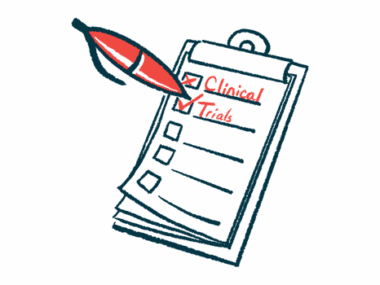Amryt’s AP101 for Treating EB Receives IND Clearance from FDA
Written by |

U.S. residents with some types of inherited epidermolysis bullosa (EB) can now participate in Amryt Pharma‘s Phase 3 trial testing AP101 (Oleogel-S10), an experimental treatment for EB.
This comes in the wake of the U.S. Food and Drug Administration granting investigational new drug (IND) clearance to AP101.
The global Phase 3 EASE trial (NCT03068780) is a double-blind, placebo-controlled study to evaluate the safety and effectiveness of AP101 during a 90-day period, with an open-label follow-up period of 24 months.
There are currently 38 trial sites in Europe, Australasia, Latin America, and the Middle East.
The company expects to recruit up to 192 participants, male and female, ages 4 and older, with inherited EB, including junctional EB (JEB), dystrophic EB (DEB), and Kindler syndrome — types of EB that affect different layers of the skin. Patients with EB simplex are not eligible to participate.
According to Amryt, the EASE trial is the largest global Phase 3 study conduced in EB patients.
Enrollment completion is planned for September 2020. An interim data readout is due later in 2018, with top-line data readout expected in the second quarter of 2019.
“As part of the study design, it was always planned that U.S. trial sites would become part of our EASE Phase III clinical trial,” Joe Wiley, CEO of Amryt Pharma, said in a press release.
“We are pleased with today’s IND clearance from the FDA as it will accelerate patient enrollment into the largest ever global EB trial undertaken,” Wiley said. “Moreover, the FDA’s decision is positive news for eligible American sufferers of this rare condition who can now participate in the study.”
AP101 is a topical product (to be applied to the skin), incorporating a betulin-based active ingredient formulated with sunflower oil. Betulin is abundant in birch bark, and AP101 consists of 10% birch bark extract in 90% sunflower oil.
AP101 causes the migration of keratinocytes (cells that regenerate the outer layer of the skin) to the wound site and their differentiation into mature epithelial skin cells, leading to faster wound healing and skin restoration.
AP101 was approved in 2016 in the European Union for the treatment of partial thickness wounds in adults under the brand name Episalvan.





